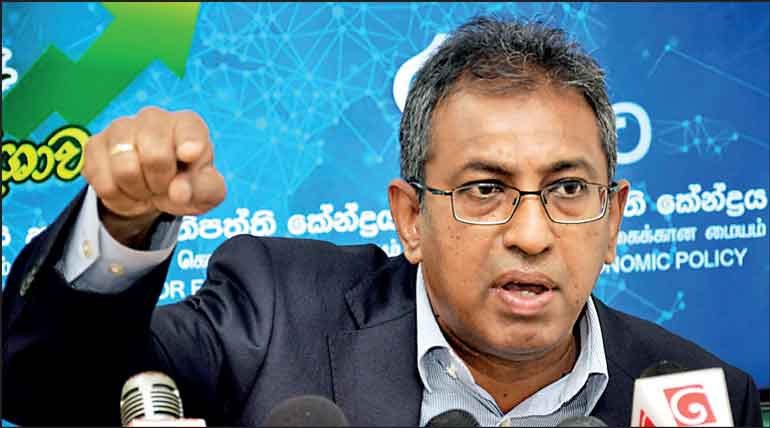Sunday Feb 22, 2026
Sunday Feb 22, 2026
Saturday, 16 September 2023 00:17 - - {{hitsCtrl.values.hits}}
 SJB MP Dr. Harsha de Silva
SJB MP Dr. Harsha de Silva
Samagi Jana Balawageya MP and Committee on Public Finance Chairman Dr. Harsha de Silva this week with reference to Sri Lanka’s sovereign debt crisis posed critical questions regarding a mysterious financier referenced in a Financial Times article and a podcast by Mitu and Mark, who have extensively covered Sri Lanka’s sovereign debt restructuring program.
“Why did former Governor of the Central Bank, Nivard Cabraal, meet with Benjamin Wei and guarantee repayment, knowing full well that Sri Lanka was on the brink of defaulting in January 2022?” Dr. Harsha inquired. Despite public claims of having up to $ 2 billion in foreign reserves, it was revealed that only $ 30 million remained when Minister Ali Sabry contacted him prior to the default.
Benjamin Wei, a central figure in this controversy, has a chequered history marked by numerous counts of fraud and legal battles. The Financial Times article highlights his involvement in questionable activities, including his promotion of Chinese reverse mergers.
The core issue centres on the Hamilton Reserve Bank’s unexplained $ 250 million stake in Sri Lankan bonds. Questions abound about how a small bank in a nation with 50,000 inhabitants and a GDP under $ 1 billion amassed such a significant stake. The legitimacy of their ownership interest comes under scrutiny, particularly given affiliations between Hamilton Reserve Bank, Fintech Holdings Ltd., and Benjamin Wei.
This situation evokes memories of the Greek bond crisis during the Greek economic turmoil.
Nivard Cabraal, as the Central Bank Governor at the time, invested Sri Lankan funds in Greek bonds, resulting in substantial losses when Greece defaulted. Parallels are evident as St. Kitts and Nevis residents’ investments in Sri Lankan ‘junk’ bonds lead to frustration and anger.
Recent revelations suggest that Benjamin Wei actively reached out to other creditors to rally against Sri Lanka, raising questions about who truly invested in these bonds and at what discounted rates, potentially profiting at the nation’s expense. The mystery of Cabraal’s repayment guarantees and undisclosed back-door deals deepens suspicions.
Hamilton Reserve Bank’s actions delay Sri Lanka’s debt restructuring program while other creditors face financial adjustments, possibly paving the way for significant profits. The timing of their court case filing immediately following Sri Lanka’s declaration of bankruptcy raises concerns about hidden agendas.
The US Attorney General’s office’s intervention underscores international unease, with Britain and France also supporting Sri Lanka in the New York Court. However, Sri Lanka’s refusal to accept any conclusions or recommendations regarding economic crimes remains a significant challenge. The lack of prosecutions further exacerbates this issue.
In parallel developments, the IMF’s forthcoming evaluation of Sri Lanka’s progress looms large.
The denial of allegations of economic crimes by the Sri Lankan Resident Ambassador to the UN poses a formidable obstacle. How can Sri Lanka move forward when key officials deny past mistakes, despite prior admissions?
Dr. Harsha and the main Opposition implore the IMF not to disregard governance issues. Sri Lanka’s path to recovery hinges on confronting the truth about economic crimes and corruption that led to its bankruptcy. Accountability and transparency must take precedence in any recovery plan.